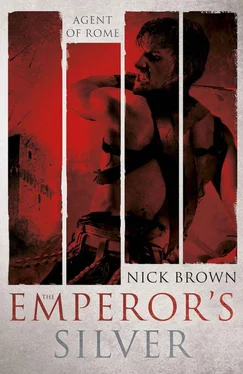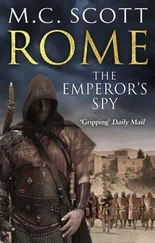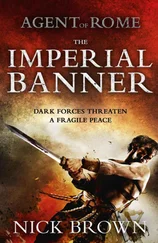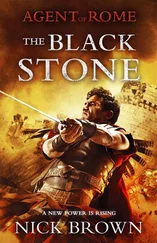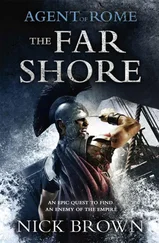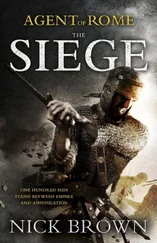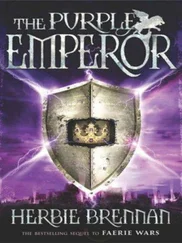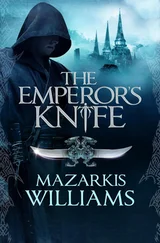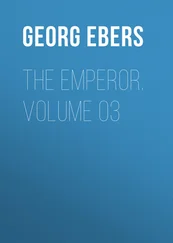Nick Brown - The Emperor's silver
Здесь есть возможность читать онлайн «Nick Brown - The Emperor's silver» весь текст электронной книги совершенно бесплатно (целиком полную версию без сокращений). В некоторых случаях можно слушать аудио, скачать через торрент в формате fb2 и присутствует краткое содержание. Год выпуска: 2015, Издательство: Hodder & Stoughton, Жанр: Исторические приключения, на английском языке. Описание произведения, (предисловие) а так же отзывы посетителей доступны на портале библиотеки ЛибКат.
- Название:The Emperor's silver
- Автор:
- Издательство:Hodder & Stoughton
- Жанр:
- Год:2015
- ISBN:нет данных
- Рейтинг книги:4 / 5. Голосов: 1
-
Избранное:Добавить в избранное
- Отзывы:
-
Ваша оценка:
- 80
- 1
- 2
- 3
- 4
- 5
The Emperor's silver: краткое содержание, описание и аннотация
Предлагаем к чтению аннотацию, описание, краткое содержание или предисловие (зависит от того, что написал сам автор книги «The Emperor's silver»). Если вы не нашли необходимую информацию о книге — напишите в комментариях, мы постараемся отыскать её.
The Emperor's silver — читать онлайн бесплатно полную книгу (весь текст) целиком
Ниже представлен текст книги, разбитый по страницам. Система сохранения места последней прочитанной страницы, позволяет с удобством читать онлайн бесплатно книгу «The Emperor's silver», без необходимости каждый раз заново искать на чём Вы остановились. Поставьте закладку, и сможете в любой момент перейти на страницу, на которой закончили чтение.
Интервал:
Закладка:
‘Looks just like the one in Antioch,’ said Indavara, examining the walls.
‘Of course – you were with Abascantius when he thought Governor Gordio was mixed up in the theft of the Persian flag. Gods, what a mess he made of that. Fortunately, I was around to pick up the pieces.’
‘By getting yourself captured?’
‘All part of the plan,’ said Cassius with a grin.
He let out a long breath and wished he’d brought his hat with him. He was wearing a thin, sleeveless tunic and his lightest boots but was still sweating. ‘Hope Simo’s found somewhere close to the coast, bit of sea air would be nice.’
One of the eight legionaries on duty opened the small iron gate next to the main entrance and a slight man of about forty appeared. Cassius’s skin was on the fair side, but this fellow’s was even paler and he grimaced as he was struck by the full power of the sun. His long-sleeved tunic was of good quality but the sleeves were marked with ink blots.
‘Officer Crispian?’
‘Yes,’ lied Cassius.
‘Lucius Gratus Quentin.’ They shook forearms.
Quentin shielded his eyes as he inspected the other new arrival. Like Cassius, Indavara was armed with dagger and sword.
‘May I see your documentation?’
‘Of course.’
Cassius reached into the deer-hide satchel over his shoulder and took out the letter of introduction. Glycia had written it; Marshal Marcellinus had signed it. Only Abascantius had possessed the presence of mind to suggest that it identified Cassius as ‘the bearer’ instead of by name.
Quentin read the note and returned it. ‘This is all rather irregular but we must of course do as we are bid. Please, follow me.’
Quentin went through the narrow archway first. As Cassius followed, one of the legionaries stepped in front of him. ‘You’ll have to leave the weapons here, sir.’
‘I’m afraid it’s policy,’ said Quentin. ‘You’ll see that I carry no blade; only the soldiers of the garrison are allowed to do so.’
‘You did see the name in that letter? Must I invoke it a second time?’
‘Officer Crispian, this is an imperial mint. Security is of the utmost importance.’
Cassius considered a jibe about the counterfeiting investigation but decided against it.
He reckoned he could have got his way by scaring the soldiers with a bit more name-dropping but it seemed unlikely he would be at risk here. ‘If you insist.’
Indavara – who never liked giving up his weapons – sneered as he removed his dagger sheath and sword belt. Cassius did the same and the soldiers took the four weapons.
Quentin led them across a strip of dusty ground towards the mint, which, like the wall, was constructed of red brick. All the small, circular windows were grilled with iron and well off the ground. Towards the rear were several chimneys, only one of which was issuing smoke. From inside the mint came the noise of clanging hammers and the occasional shout.
‘Have you any experience of combating counterfeiting, Officer?’ asked Quentin.
‘None at all.’
Quentin made little attempt to conceal his dismay.
‘I am hoping you will be able to educate me,’ added Cassius.
Waiting outside the broad, arched entrance was a middle-aged man of about fifty in a light blue tunic decorated with yellow lozenges.
Quentin introduced him. ‘Flavius Arruntius, chief of the mint.’
‘Officer Crispian, Imperial Security.’
‘Welcome, sir,’ said Arruntius, a large character with rosy cheeks and an amenable face. ‘My staff and I are at your disposal.’
‘Many thanks.’
‘I thought we might show you one of the workshops first,’ said Quentin, ‘so you can better understand what you are to investigate.’
‘That sounds sensible.’
‘It will have to be workshop two,’ said Arruntius, ‘the only one functioning at present.’
‘Work has slowed down since the first issue,’ explained Quentin. ‘That was mainly for army pay. The rest will be introduced more slowly – payments for civic projects and wages for municipal workers.’
‘These counterfeits,’ said Cassius, ‘are they just of the new denarius?’
‘As far as we know,’ replied Quentin. He produced a coin from a pocket and showed it to Cassius. ‘You may not have seen many down in Arabia yet but these are being produced and distributed at Siscia, Cyzicus, Serdica, Antioch and here. The aim is for them to eventually become the primary currency for the entire Empire.’
‘And now someone is making their own?’
Quentin exchanged an anxious look with Arruntius. ‘We’ll get to that. Let us first show you how they are made.’
Cassius gestured towards the arch. ‘Please.’
Workshop two was divided into several sections. The first was a large room containing four ovens. Despite an open door that led out to a courtyard, the temperature reminded Cassius of a hot room at the baths. The rounded ovens were constructed of clay, each one with a chimney and an opening at the front. Only two were alight, burning bright orange inside. Half a dozen men were at work, wearing aprons over their tunics, skin glistening with sweat. They turned and nodded politely when they realised they had visitors.
Cassius noted some metal ingots stacked on a wooden pallet. Most were of bronze but there was also copper and silver. Arruntius led the other three to a central table and pointed at a rectangular lump of clay containing rows of hollows. ‘This is the mould: made of what we call foundry sand – sand mixed with clay. We pour molten bronze into these then they go into the oven.’
He continued on and pointed down at two empty vats sunk into the ground. ‘These would usually contain the liquid silver – when the bronzes come out of the ovens we apply the wash here.’
Guarding the arched doorway that led to the next section was a legionary who looked as if he was ready for another duty.
‘Of course, security is crucial,’ said Arruntius. ‘We also inventory every last item at the end and beginning of the working day.’
He led them into the second section. In the middle of the room was a huge square table. On top of it was a wooden tray containing dozens of silver-coated coins. A worker was picking them out one by one, examining the surface and clipping off any excess metal around the edges.
‘Once they’ve cooled, the “blanks” are checked in here,’ said Arruntius.
Farther along the table was another worker by a set of scales. He was weighing every coin.
‘Keeping a standardised weight is essential,’ added the chief of the mint, ‘and not easy to achieve.’ He pointed at a bucket containing several coins. ‘Anything not up to standard goes back for remoulding.’
Cassius looked at a tray containing approved ‘blanks’. Having just been ‘washed’ these looked almost like silver, but he knew from experience that, after handling, most of the coins would end up looking like what they really were: bronze.
‘So not much actual silver in a denarius these days.’
Arruntius gave an ironic smile and looked at Quentin, who answered.
‘Should be five per cent.’
Arruntius took a single blank from the nearest tray and led them past another guard into the third section. No one was working but there was a circular table surrounded by four large anvils mounted on bases of brick. On the table were two cylinders of what looked to Cassius like lead, each about two inches wide and five high.
‘These are the dies,’ said Arruntius as they reached the table. ‘See the images? One is the obverse, one the reverse.’
The obverse showed the head of the Emperor. He was wearing a crown and facing to the right. Written around the top half of the coin was his name.
Читать дальшеИнтервал:
Закладка:
Похожие книги на «The Emperor's silver»
Представляем Вашему вниманию похожие книги на «The Emperor's silver» списком для выбора. Мы отобрали схожую по названию и смыслу литературу в надежде предоставить читателям больше вариантов отыскать новые, интересные, ещё непрочитанные произведения.
Обсуждение, отзывы о книге «The Emperor's silver» и просто собственные мнения читателей. Оставьте ваши комментарии, напишите, что Вы думаете о произведении, его смысле или главных героях. Укажите что конкретно понравилось, а что нет, и почему Вы так считаете.
